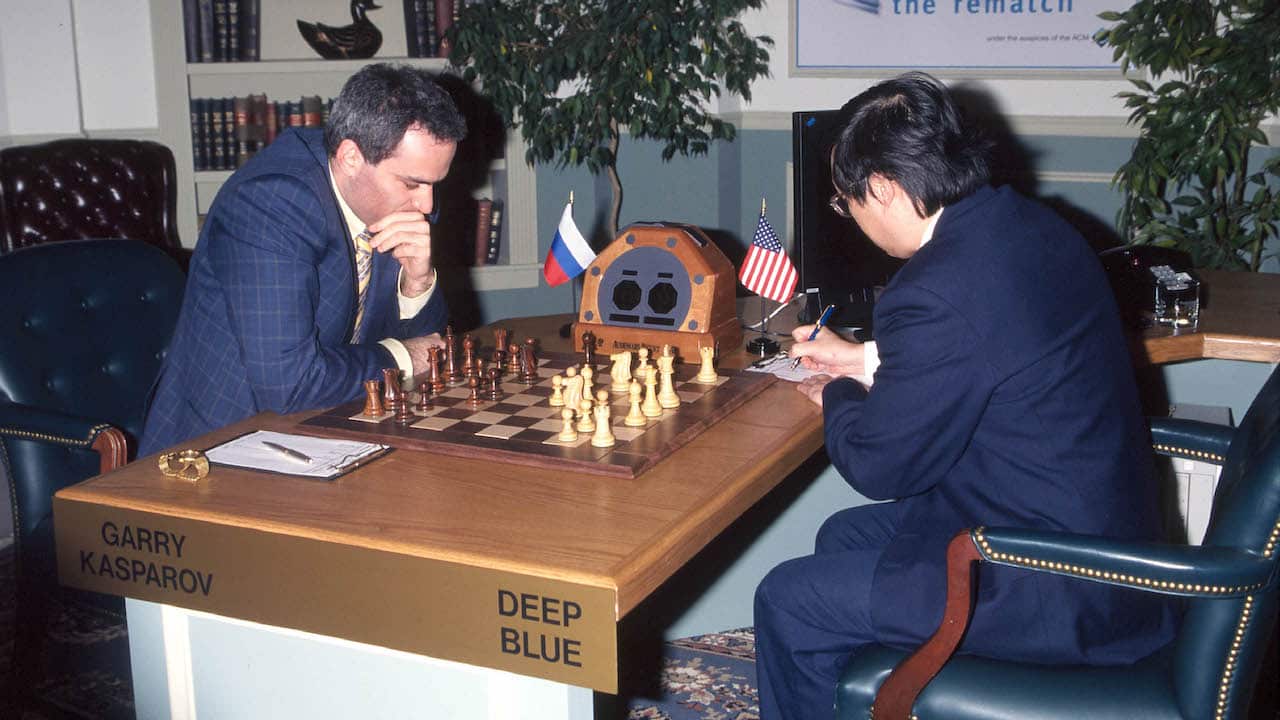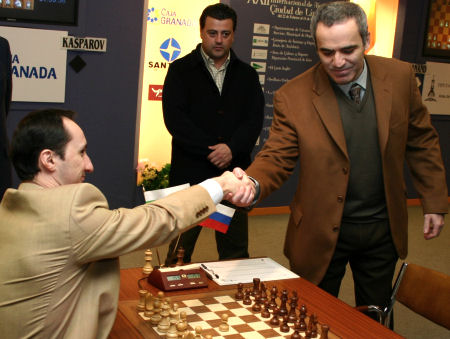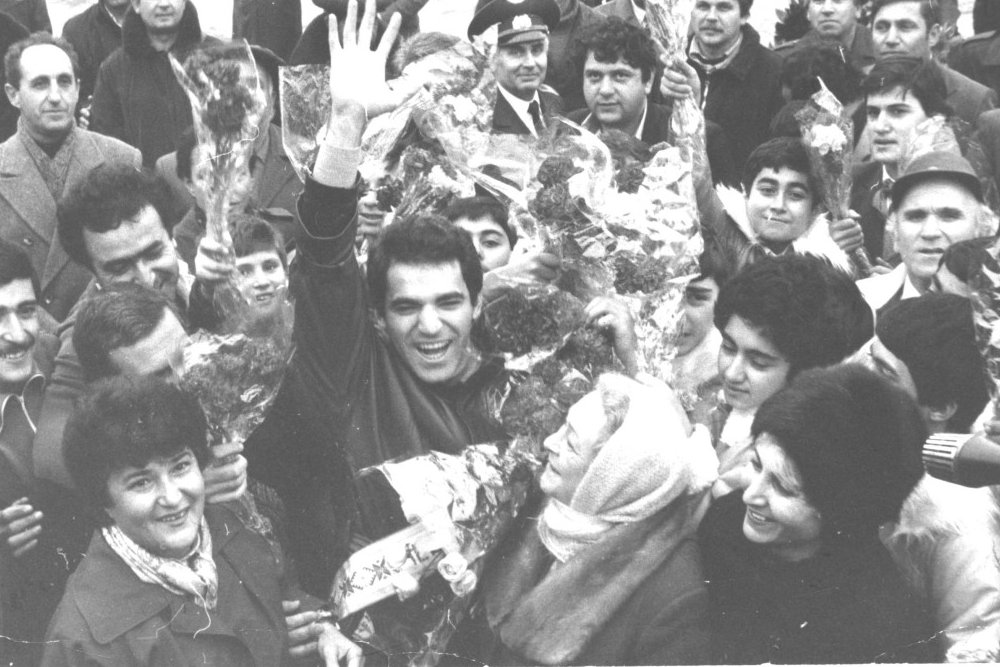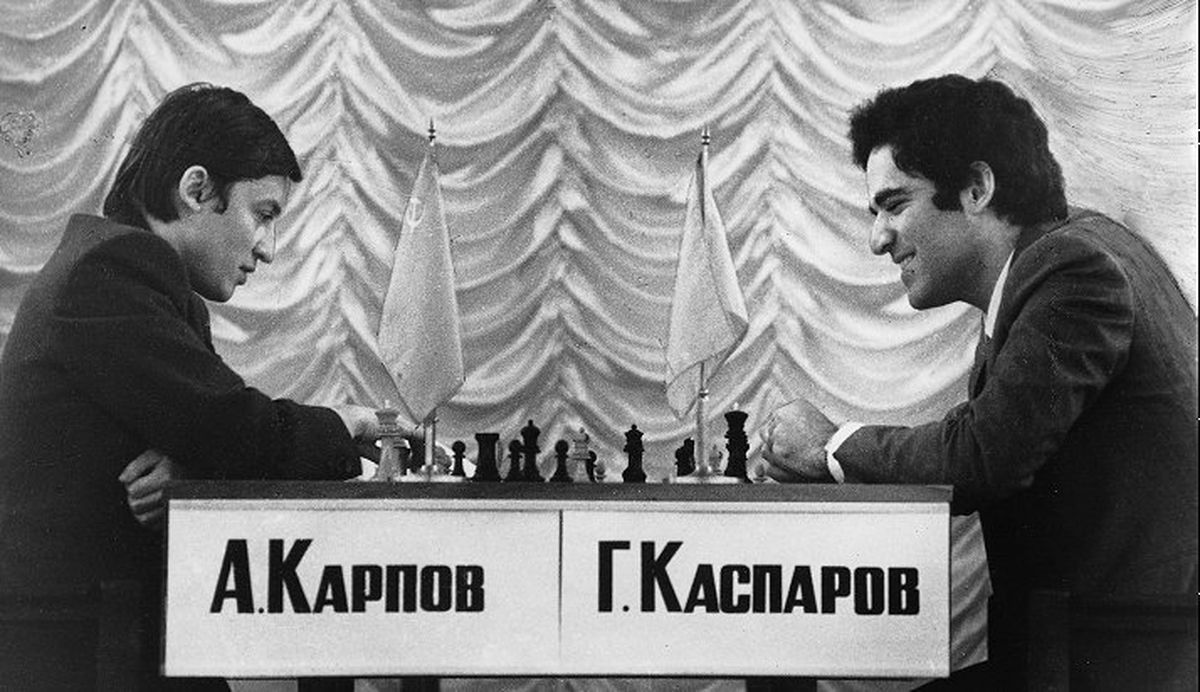Garry Kasparov: The Grandmaster of Chess and Human Potential
Garry Kasparov, a name synonymous with brilliance, strategy, and unparalleled mastery of the chessboard. Born on April 13, 1963, in Baku, Azerbaijan, Kasparov's journey from a young prodigy to becoming one of the greatest chess players in history is a testament to the power of intellect, determination, and relentless pursuit of excellence. From a very early age, Kasparov exhibited an exceptional aptitude for chess. Under the guidance of his father, he began honing his skills, demonstrating a remarkable ability to analyze positions and anticipate opponents' moves. By the age of 13, Kasparov had already become a Soviet chess master, setting the stage for a career that would redefine the game of chess forever.
From a very early age, Kasparov exhibited an exceptional aptitude for chess. Under the guidance of his father, he began honing his skills, demonstrating a remarkable ability to analyze positions and anticipate opponents' moves. By the age of 13, Kasparov had already become a Soviet chess master, setting the stage for a career that would redefine the game of chess forever.
Kasparov's breakthrough on the international stage came in 1985 when he became the youngest World Chess Champion in history at the age of 22, defeating the reigning champion, Anatoly Karpov, in a grueling match that lasted five months and captivated the world. This victory marked the beginning of Kasparov's reign as the undisputed king of chess, a title he would hold for over a decade.Throughout his career, Garry Kasparov dazzled the world with his innovative style, unparalleled creativity, and fierce competitive spirit. His approach to the game was characterized by a relentless pursuit of victory, combined with a deep understanding of chess theory and an uncanny ability to outmaneuver opponents both on and off the board.
Kasparov's rivalry with Anatoly Karpov, which spanned multiple World Championship matches, is legendary in the annals of chess history. Their clashes were not merely battles of skill but epic struggles of willpower, endurance, and psychological warfare. Kasparov's victory over Karpov in their 1990 rematch cemented his status as the dominant force in chess and solidified his legacy as one of the game's all-time greats.
Beyond his rivalry with Karpov, Garry Kasparov's impact on the world of chess extended far beyond the chessboard. He revolutionized the game with his innovative approach to opening theory, groundbreaking use of computer analysis, and relentless pursuit of perfection. Kasparov's influence inspired a new generation of players and elevated the level of competition to unprecedented heights. In 1997, Garry Kasparov faced off against IBM's Deep Blue supercomputer in a historic match that captured the imagination of the world. The clash between man and machine was a defining moment in the history of artificial intelligence and a testament to Kasparov's enduring legacy as a pioneer of human-machine competition. Though he ultimately lost the match, Kasparov's performance showcased the power of human creativity and intuition in the face of technological advancement.
In 1997, Garry Kasparov faced off against IBM's Deep Blue supercomputer in a historic match that captured the imagination of the world. The clash between man and machine was a defining moment in the history of artificial intelligence and a testament to Kasparov's enduring legacy as a pioneer of human-machine competition. Though he ultimately lost the match, Kasparov's performance showcased the power of human creativity and intuition in the face of technological advancement.
Off the chessboard, Garry Kasparov emerged as a prominent voice for democracy, freedom, and human rights. His outspoken criticism of the Russian government and advocacy for political reform made him a target of persecution and harassment. Despite the risks, Kasparov remained steadfast in his commitment to speaking out against injustice and oppression, earning him admiration and respect from around the world.
In 2005, Garry Kasparov announced his retirement from professional chess, leaving behind a legacy that transcends the boundaries of the game. Since then, he has dedicated himself to championing causes close to his heart, including democracy promotion, education reform, and technological innovation. As chairman of the Human Rights Foundation, Kasparov continues to fight for freedom and democracy in authoritarian regimes around the world.
Today, Garry Kasparov's influence extends far beyond the world of chess. He is a symbol of intellect, courage, and the boundless potential of the human mind. Whether on the chessboard or in the arena of global politics, Kasparov's legacy serves as a reminder of the power of determination, resilience, and unwavering belief in the pursuit of greatness.
In the grand tapestry of human history, Garry Kasparov stands as a shining example of the heights that can be achieved through intellect, passion, and relentless pursuit of excellence. His legacy will continue to inspire generations to come, reminding us that with dedication, perseverance, and unwavering belief in ourselves, anything is possible.
In the years following his retirement from professional chess, Garry Kasparov has continued to make significant contributions to various fields, cementing his status as a polymath and a visionary leader. His transition from the chessboard to broader arenas reflects his insatiable curiosity, intellectual depth, and commitment to making a positive impact on the world.
One of Kasparov's most notable endeavors post-retirement has been his foray into politics. Recognizing the importance of democracy and human rights, particularly in his native Russia, Kasparov became an outspoken critic of the Putin regime. He co-founded the United Civil Front, a political movement dedicated to opposing authoritarianism and promoting democratic reforms in Russia. Despite facing harassment, intimidation, and even arrest, Kasparov remained steadfast in his commitment to advocating for political change, serving as a beacon of hope for those fighting against tyranny and oppression.
Furthermore, Garry Kasparov has established himself as a prolific author and speaker, sharing his perspectives on a wide range of topics, from chess strategy and leadership to geopolitics and innovation. His books, including "How Life Imitates Chess" and "Winter is Coming: Why Vladimir Putin and the Enemies of the Free World Must Be Stopped," offer profound insights into decision-making, strategy, and the complexities of the modern world. Through his writings and public appearances, Kasparov continues to inspire audiences with his intellect, wit, and depth of knowledge.Beyond his professional pursuits, Garry Kasparov remains deeply committed to philanthropy and humanitarian causes. Through his foundation and various charitable initiatives, he supports educational programs, promotes cultural exchange, and provides assistance to vulnerable communities around the world. Kasparov's dedication to making a positive difference in the lives of others reflects his belief in the importance of compassion, empathy, and social responsibility.
As the world continues to grapple with complex challenges, from political upheaval to technological disruption, Garry Kasparov's leadership and wisdom serve as a guiding light. His relentless pursuit of truth, justice, and human flourishing inspires individuals from all walks of life to strive for excellence, confront adversity with courage, and never lose sight of the power of the human spirit. In the grand tapestry of human history, Garry Kasparov's legacy is one of innovation, resilience, and unwavering commitment to the values of freedom, democracy, and human dignity. Whether on the chessboard, in the political arena, or in the realm of technology, Kasparov's influence will continue to shape the world for generations to come, reminding us that the pursuit of greatness knows no bounds.
In the grand tapestry of human history, Garry Kasparov's legacy is one of innovation, resilience, and unwavering commitment to the values of freedom, democracy, and human dignity. Whether on the chessboard, in the political arena, or in the realm of technology, Kasparov's influence will continue to shape the world for generations to come, reminding us that the pursuit of greatness knows no bounds.
































